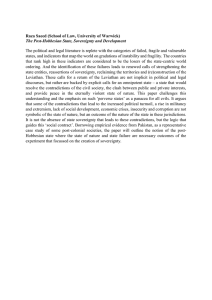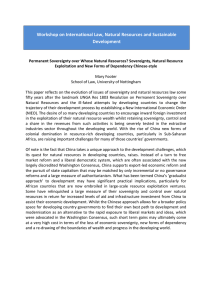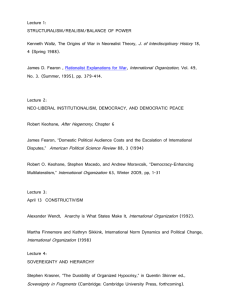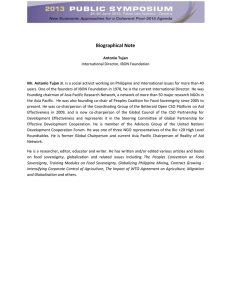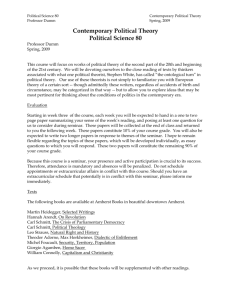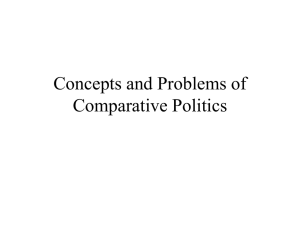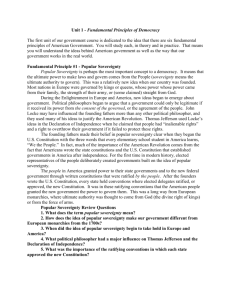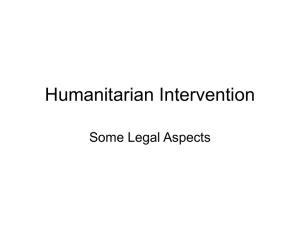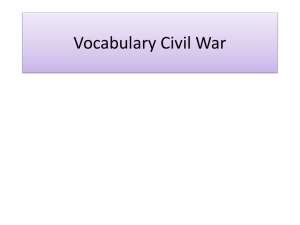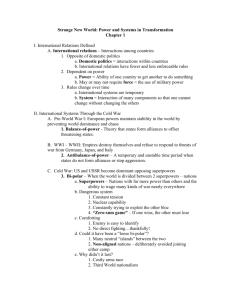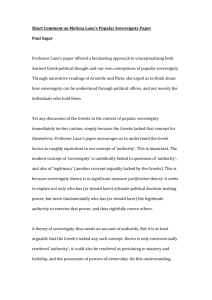JOJB202XX1 Theory of State Course description: Theory of the
advertisement
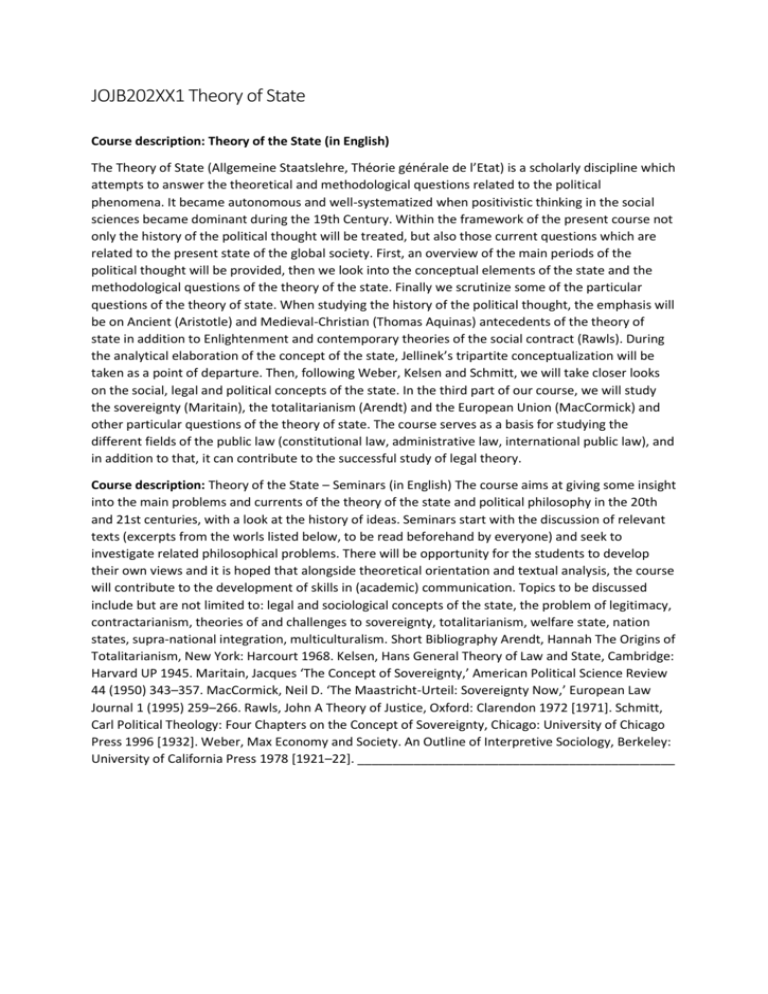
JOJB202XX1 Theory of State Course description: Theory of the State (in English) The Theory of State (Allgemeine Staatslehre, Théorie générale de l’Etat) is a scholarly discipline which attempts to answer the theoretical and methodological questions related to the political phenomena. It became autonomous and well-systematized when positivistic thinking in the social sciences became dominant during the 19th Century. Within the framework of the present course not only the history of the political thought will be treated, but also those current questions which are related to the present state of the global society. First, an overview of the main periods of the political thought will be provided, then we look into the conceptual elements of the state and the methodological questions of the theory of the state. Finally we scrutinize some of the particular questions of the theory of state. When studying the history of the political thought, the emphasis will be on Ancient (Aristotle) and Medieval-Christian (Thomas Aquinas) antecedents of the theory of state in addition to Enlightenment and contemporary theories of the social contract (Rawls). During the analytical elaboration of the concept of the state, Jellinek’s tripartite conceptualization will be taken as a point of departure. Then, following Weber, Kelsen and Schmitt, we will take closer looks on the social, legal and political concepts of the state. In the third part of our course, we will study the sovereignty (Maritain), the totalitarianism (Arendt) and the European Union (MacCormick) and other particular questions of the theory of state. The course serves as a basis for studying the different fields of the public law (constitutional law, administrative law, international public law), and in addition to that, it can contribute to the successful study of legal theory. Course description: Theory of the State – Seminars (in English) The course aims at giving some insight into the main problems and currents of the theory of the state and political philosophy in the 20th and 21st centuries, with a look at the history of ideas. Seminars start with the discussion of relevant texts (excerpts from the worls listed below, to be read beforehand by everyone) and seek to investigate related philosophical problems. There will be opportunity for the students to develop their own views and it is hoped that alongside theoretical orientation and textual analysis, the course will contribute to the development of skills in (academic) communication. Topics to be discussed include but are not limited to: legal and sociological concepts of the state, the problem of legitimacy, contractarianism, theories of and challenges to sovereignty, totalitarianism, welfare state, nation states, supra-national integration, multiculturalism. Short Bibliography Arendt, Hannah The Origins of Totalitarianism, New York: Harcourt 1968. Kelsen, Hans General Theory of Law and State, Cambridge: Harvard UP 1945. Maritain, Jacques ‘The Concept of Sovereignty,’ American Political Science Review 44 (1950) 343–357. MacCormick, Neil D. ‘The Maastricht-Urteil: Sovereignty Now,’ European Law Journal 1 (1995) 259–266. Rawls, John A Theory of Justice, Oxford: Clarendon 1972 [1971]. Schmitt, Carl Political Theology: Four Chapters on the Concept of Sovereignty, Chicago: University of Chicago Press 1996 [1932]. Weber, Max Economy and Society. An Outline of Interpretive Sociology, Berkeley: University of California Press 1978 [1921–22]. _____________________________________________

